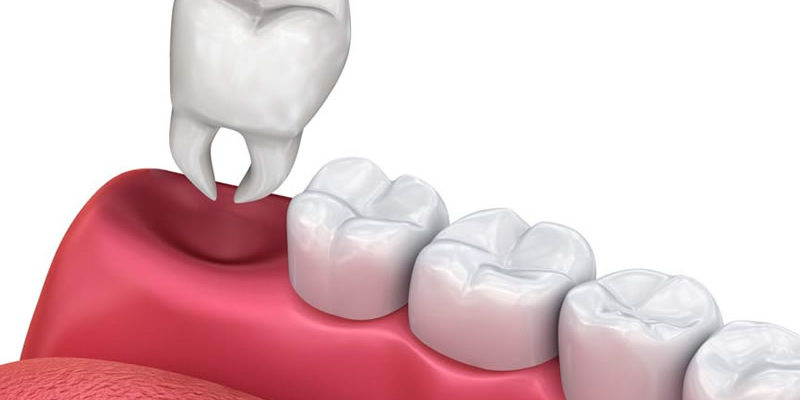Your dentist in Cranbrook will always do anything possible to prevent the need to perform a tooth extraction near you. Many tooth extractions that were necessary years ago can now be prevented thanks to the development of new treatment techniques. Rescuing teeth from preventable extractions is preferable because it: eliminates the need for you to undergo a stressful procedure; eliminates the already low risk of infections and complications; and eliminates the need to deal with ever having to replace the extracted tooth.
Having said all of that, there are times when performing a tooth extraction in Cranbrook is the best alternative for a patient’s health. Here are four situations in which undergoing a tooth extraction near you is the right call.
If your tooth is severely decayed
Dentists and crowns can be used to repair a decayed tooth without having to resort to having the tooth pulled, but tooth decay that has been permitted to progress for too long can destroy so much material in the tooth that a crown or filling can’t be supported. If the tooth decay affects not just the visible portion of your tooth but the roots below the gum line, too, your tooth may eventually be unable to stay in position on its own. In those cases, an extraction may be necessary.
If your tooth is badly broken
It may seem strange, but teeth are simultaneously strong and vulnerable to being damaged and broken in slip and fall incidents, car accidents, physical assaults and even sports collisions. A cracked or chipped tooth can usually be repaired with dental treatments ranging from bonding to veneers, to crowns. If the damage to the tooth is deep or significant or has even broken the tooth into multiple pieces, those treatments may not be able to hold the tooth together to allow it to function without pain and significant infection risk. A badly damaged or broken tooth may need to be pulled and replaced to avoid further injury to your gums and significant pain and risk of infection.
If your jaw is overcrowded
In a perfect world, your 32 permanent teeth will grow into your two typically-sized jaws without overlapping or bumping into each other. Due to normal anatomical variation from person to person, though, sometimes teeth don’t come in straight because the jaw is too small to hold all of your developing teeth without overcrowding. To eliminate the effects of overcrowding — including tooth and jaw pain, bite problems, crooked teeth and problems maintaining oral hygiene — your dentist may recommend some of those teeth be pulled.
Your dentist will, during your teenage years, take dental X-rays to see if you are developing wisdom teeth. Wisdom teeth are a third set of molars that most (but not all) people begin to develop in their late teens and early twenties. You don’t need those wisdom teeth and they can cause problems in your mouth by becoming impacted or dislodging other teeth already in position. To eliminate those risks, preventative extractions are common.
If the interior of your tooth is severely infected
Tooth decay is a type of infection that typically affects the outside surfaces of your teeth. Significant tooth decay, injuries and the presence of bacteria in your mouth can also cause infections in the interior of your tooth. Over time, an untreated infection in the interior of your tooth will kill the pulp, nerves and other tissues inside the tooth. That infected material can cause further infection in your jaw and even throughout your body. An infected tooth does not necessarily have to be extracted. Root canal procedures remove infected material from the inside of a tooth so that an extraction is unnecessary. In the case of a severe infection or situations where you have waited too long, root canal procedures may be ineffective. Only a tooth extraction will protect your health effectively.

